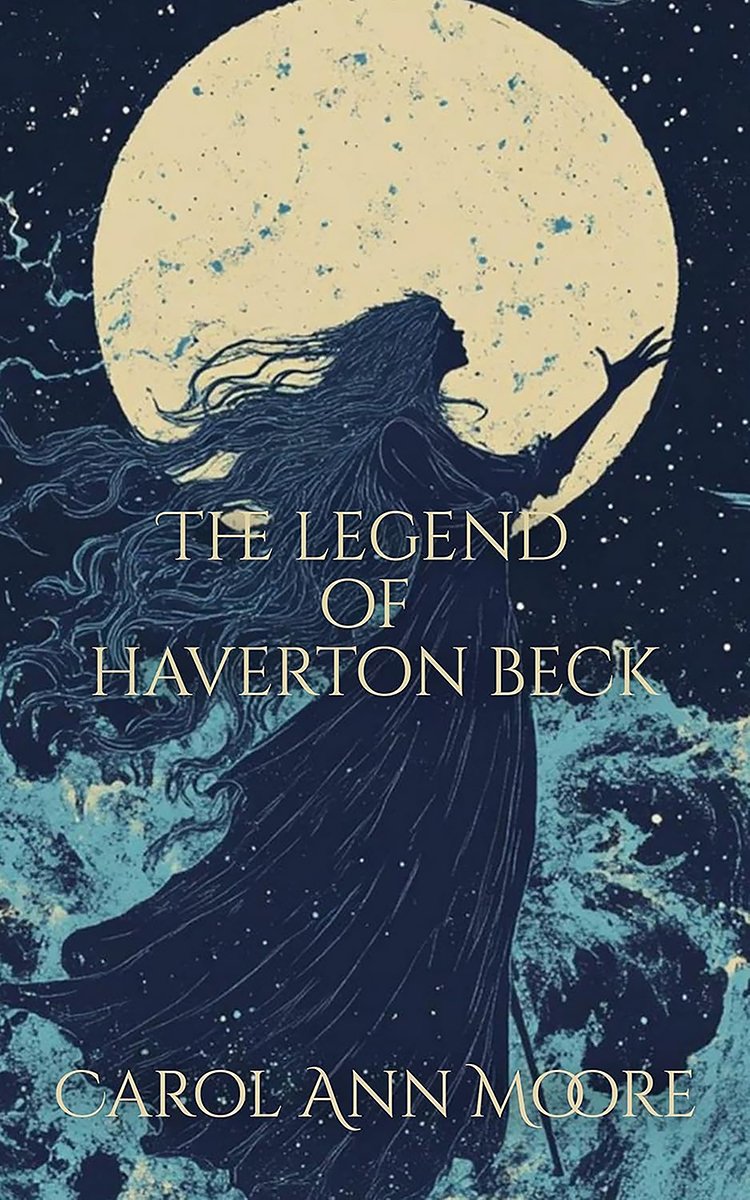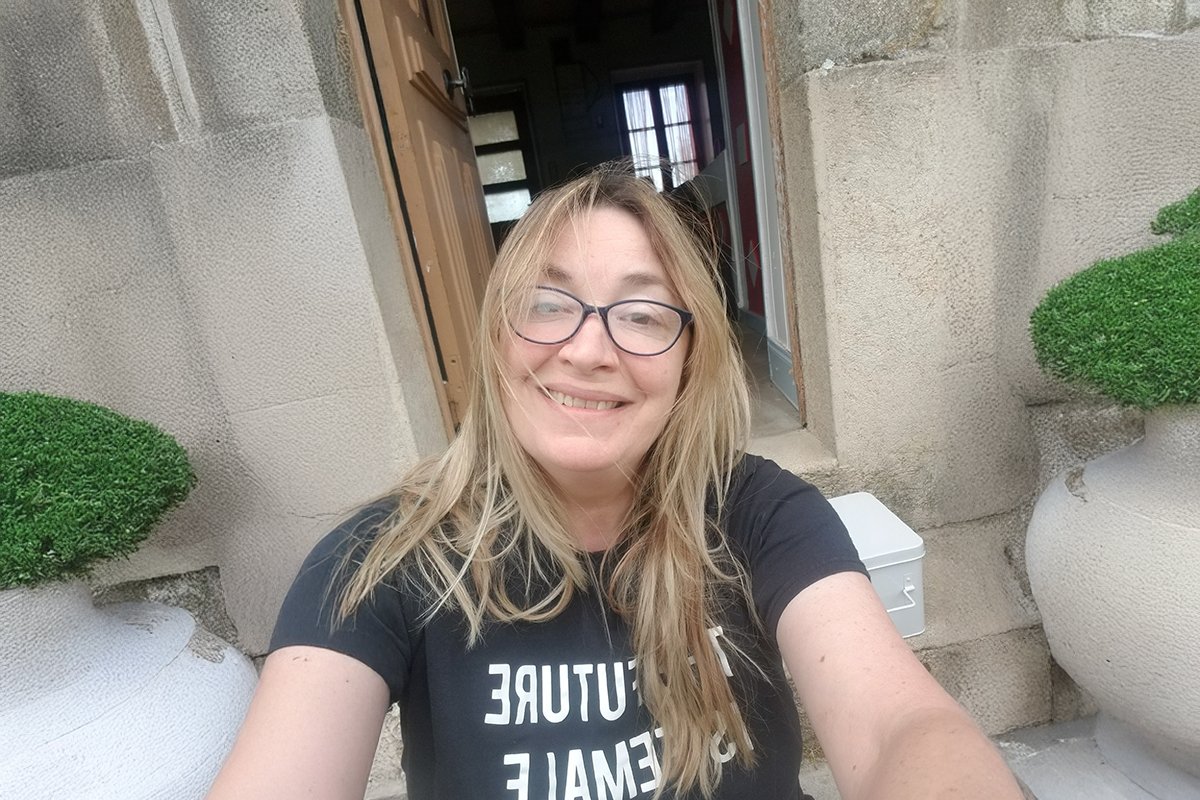PHOTO: Author Carol Ann Moore at her home in rural France, where she writes stories that bridge myth, history, and feminine strength.
Reclaiming Women’s Voices Across History And Myth
Carol Ann Moore discusses her empowering series The Aella Chronicles, blending history, feminism, and magical realism to illuminate women’s stories and reclaim their voices from centuries of silence and misrepresentation.
Carol Ann Moore writes with the conviction of a woman who has lived both within and beyond the boundaries of expectation. Rooted in the quiet strength of the English countryside and the liberating wildness of rural France, her voice carries a timeless quality—one that merges poetic reflection with the fire of resistance. Her stories are steeped in HERstory, not as a slogan but as a reclamation, a way of rethreading the silenced voices of women through the fabric of myth, memory, and magic.
In The Aella Chronicles, Moore reimagines history through the eyes of the immortal witch Aella Saluagius, weaving together centuries of female experience with elements of magical realism. Her prose moves between the real and the imagined with ease, giving readers both escape and confrontation—escape from the mundane, and confrontation with the inherited injustices of the past. The result is a tapestry of vengeance, sisterhood, and enduring hope.
Moore’s storytelling is deeply human and fiercely empathetic. Beneath the mythic landscapes and elemental power of her worlds, there beats an urgent, modern heart—one that questions the structures that have shaped women’s lives and imagines how they might be undone. Through every chapter, she reminds us that stories, much like women’s voices, cannot be buried forever; they wait, quietly, until someone dares to speak them into being.
A visionary storyteller who redefines feminist fiction through imagination, depth, and heart—Carol Ann Moore writes with truth, courage, and spellbinding authenticity.
Your work often emphasises “HERstory” rather than “HIStory” — could you explain what that distinction means to you, and how it shapes your narratives?
I grew up reading the classics. Many of which were written by women under a male pseudonym to avoid gender bias. When I found this out as a young girl, I was baffled. This was before I had experienced the world as a woman; eventually, I understood. History is written by the winners. Their biases highlight their triumphs while hiding the truth as seen from another perspective. Through my writing, I am keen to show the stories of women that have been overlooked, hidden and distorted.
How has the series, The Aella Chronicles, evolved?
I originally wrote Sisterhood as a one-off novel. It is set in the modern day but includes the backstory of Aella, my main protagonist within the pages. So many readers kept asking me the same question. ‘What happened to the women in Aella’s backstory?’ I realised I could take Aella’s immortality and write a history of misogyny as experienced by women through the ages, and that is what I am currently doing. In reality, the series starts with The Coven of Cagliasaro, which is set in 16th-century Italy. I am taking Sisterhood off the shelves and will write a second edition once the series is complete.
“History is written by the winners. I want to show the stories of women that have been overlooked, hidden and distorted.” – Carol Ann Moore
In your book series, The Aella Chronicles, you interweave multiple women’s lives. How do you approach weaving together diverse perspectives while maintaining coherence?
A constant thread of connection between the characters in the stories keeps the narrative coherent. The women in the series, whether a one-off character or a recurring one, have a mutual goal; challenging misogyny and wreaking vengeance on its perpetrators.
What challenges do you encounter when writing about feminist themes in historical or magical settings, especially in blending fact and imagination?
Having established my main character, Aella Saluagius, as an elemental immortal witch, I approach my writing in the magical realism style. Therefore, fact and imagination can blend seamlessly, especially when you employ artistic licence. Writing about feminist themes isn’t hard; there are a plethora of women’s experiences to draw from, and the patriarchy has recorded its own glory in such detail that factual information is easy to come by. Take the law of coverture, for example, a legal doctrine where a married woman’s legal existence was considered to be merged with that of her husband. Upon marriage, she had no independent legal existence of her own; this situation continued until the mid-to-late 19th century.
Which female figures—real or fictional—have most inspired your storytelling, and how do they manifest in your characters?
My mother’s family was a very matriarchal group of women. Stories of hard lives and extreme poverty at the turn of the century in the East End of London have definitely inspired my characters. My maternal grandmother was a formidable woman known for her outspoken opinions and no-nonsense personality. As for my main character, she is everything I would hope to be if I had her gifts at my fingertips!
“Writing about feminist themes isn’t hard; there are a plethora of women’s experiences to draw from.” – Carol Ann Moore
When it comes to world-building (whether historical, magical or social), what is your process? Do you start with character, setting, or theme?
As the books have materialised into a series, my main character is as real to me as a living, breathing woman, so I know how she will react in any situation. Subsequent books have moved her along from the 16th century to, at the present time, the 18th. I tend to start with a setting and develop a theme, which is not too onerous; there are plenty of historical accounts of how women have been treated badly to choose from. I take these three aspects and weave a tale around them.
How do you balance pacing, plot twists, and emotional depth? Do you plot everything in advance or allow the story to evolve organically?
I never plot the story. Apart from Aella being in a setting and a preliminary interaction with someone, everything develops organically. As I get further along, I may have ideas of where the plot will go, but often my characters take it to places I never imagined.
Many writers struggle with self-doubt or getting stuck during a manuscript. What strategies or rituals have you developed to push through creative blocks?
Usually, around the midpoint of the story, I will have a wobble. I think I’ll be unable to gather all the plot lines together and make them coherent. When this happens, I just keep writing through the disbelief that it won’t come together, one chapter at a time. If you don’t, the book won’t get finished. I employ the same advice I gave my students; get the story down on paper and you can make it look pretty afterwards.
“I never plot the story—my characters often take it to places I never imagined.” – Carol Ann Moore
For readers who come to your work for empowerment, what core message or feeling do you hope they carry away after finishing your book?
First, I hope they were immersed in a story that took them away from the mundane and ordinary for a time. Second, I hope my message that the rules and negative socialisation that women experience from childhood is not how we have to live our lives, if we are lucky enough to have the choice. Lastly, I hope they leave my stories with a sense of sisterhood and hope for the future.
What advice would you give to emerging or aspiring authors—especially women or feminist writers—about finding their authentic voice, sustaining motivation through rejections?
My advice to any aspiring authors is to read much and widely. Absorbing another author’s work will inspire you. Writing is like a muscle; the more you practise, the stronger it gets. Write about what you love or feel passionate about and keep showing up to your notebook or computer and get the words down. There will always be people who don’t like your style or content, but if you waited for approval from everyone, then you’d be waiting forever.
Do you have another book in the pipeline, and what can readers expect from it?
My latest book is currently being edited and will be available in the New Year. In the Daughters of Medeina, Aella has found herself in the twin settings of a primordial forest and a fictional walled city in Northern Europe. There’s a Goddess, a sacred tree guardian and a demon; the full cast. Thematically, I have explored the dynamics of perfection culture in women, sisterhood as salvation and the reclamation of ancient feminine power.
What can we expect from Carol Ann Moore in 2026?
I am investigating the world of audiobooks and am hoping to have The Aella Chronicles available to listeners soon.
EDITOR’S CHOICE
A dazzling blend of dark folklore, emotional depth, and empowering female characters—this book will captivate and haunt you..



